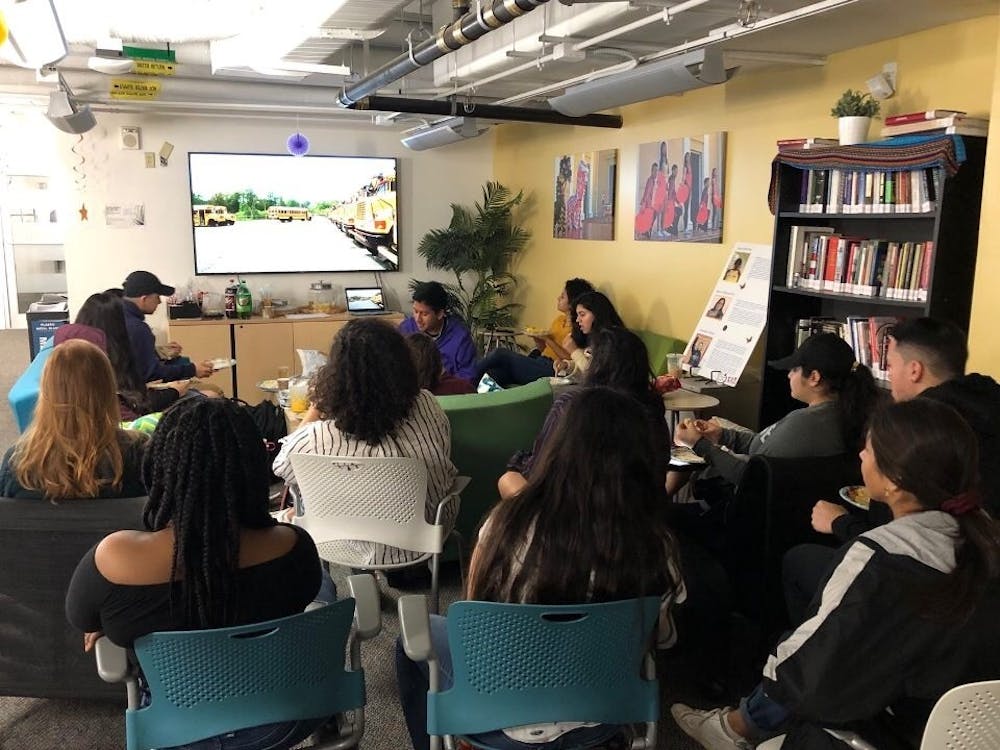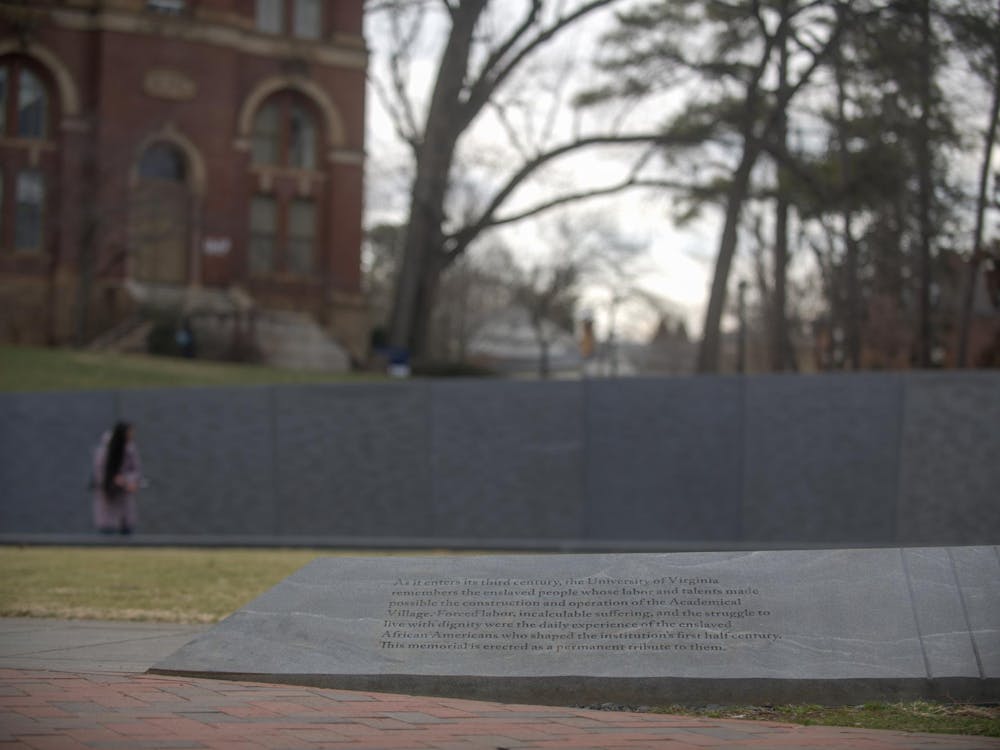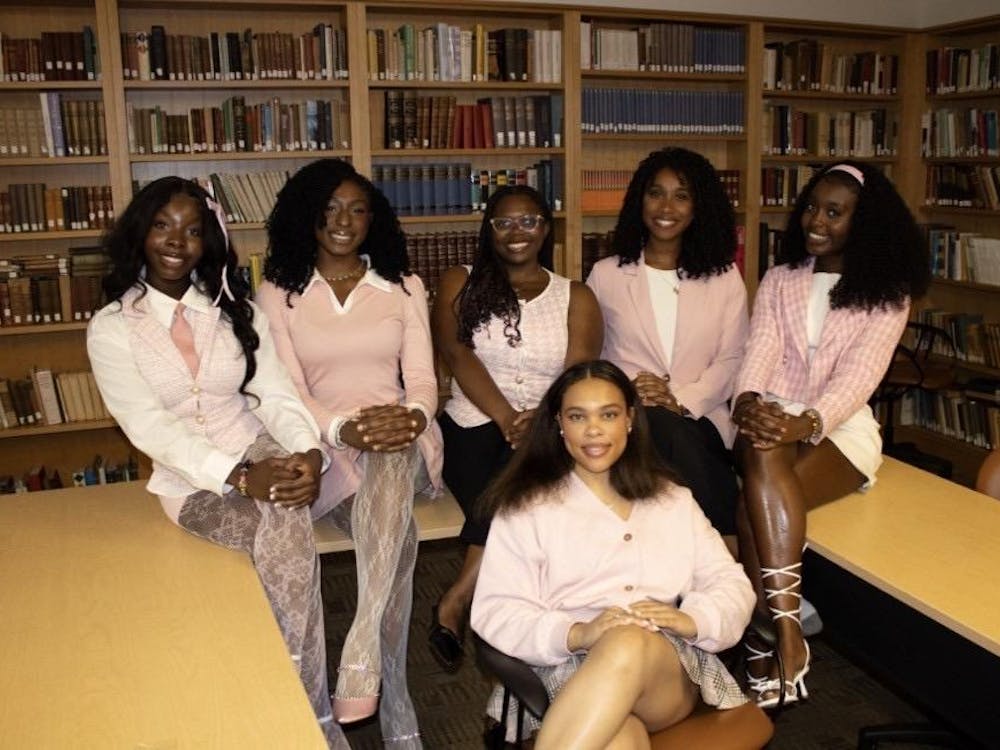The representation of Central Americans has never been abundant at the University, but last October, third-year College student Johanna Moncada Sosa sought to change that.
At that time, news coverage of migrant caravans traveling from several Central American countries to the United States became the focus of media attention. Aerial shots of the migrants were broadcasted on nearly every major news network, and journalists were sent to cover the travelers as they made their way to the U.S. A number of politicians vilified the migrants, and some said the migrants were a danger to Americans because they were traveling with “unknown Middle Easterners.” It all quickly reached a breaking point for Sosa, who had seen enough of this unfavorable portrayal of Central Americans.
As a result, Sosa joined with several other Central American students to form Central Americans for Empowerment at the University. CAFE focuses on ensuring that Central American voices and concerns — those from one of the seven countries that lie between Mexico and Colombia — are properly represented at the University.
“The whole goal is to center Central American voices within this greater discourse that I keep talking about, and not only that but trying to bring in things that aren’t talked about whatsoever, even in academia,” Sosa said. “[We want to] bring overlooked voices together and actually bring awareness to what is going on.”
Within CAFE’s first weeks, long before they achieved CIO status in April, the group joined with DREAMers on Grounds and the Latinx Student Alliance to bring awareness to the migrant crisis. After this event, CAFE’s involvement on Grounds expanded. In the last six months, they have hosted an open mic night to discuss borders, voiced their opposition to conservative commentator Anna Paulina’s visit to Grounds and educated students about the harmful effects of voluntourism.
It is through initiatives like these that Sosa hopes to make the University feel more comfortable for Central American students.
“We try to be really close-knit and create that sense of community that is often found within family households within Central America — it’s a pillar of the culture pretty much — and so making sure that at any event that CAFE has, whether it’s co-sponsored by another organization or not, is welcoming,” Sosa said. “It’s our mission to always ensure that it’s a safe space for people, that they feel comfortable asking questions, making comments [and] sharing stories.”
This past month, CAFE exhibited their commitment to educating the University on Central American issues at their Cine Cafeina event. Cine Cafeina was a film series held to bring attention to Central America and Central American issues through their depiction in modern media. The movie series was held from March 22 to April 19 with a showing planned for each Friday. Originally meant to be a five-film series, the April 12 movie screening had to be canceled after scheduling conflicts prevented CAFE executive members from being present to moderate. Sosa estimated that 6 to 20 people attended each showing.
CAFE worked to represent a multitude of countries and also sought to defy stereotypical representations of Central America, which often puts forward the idea that the cultures of all seven countries are the same. Ensuring this complex representation of Central America was very important to Andrea Ybarra, second-year College student and CAFE financial chair.
“With CAFE being created because there was no other representation of Central Americans, I think now we have to think and actively step up about representation,” Ybarra said. “I don’t want to do the countries that everyone’s heard about … we want to show special focus and special intersectionality so looking into movies that focus on the indigenous people in the area and not just focus on mestizo-centric ideals about Central America.”
As a result of this commitment, the film series included the movies “El Norte,” “Resistencia: The Fight for the Aguan Valley,” “Banana Land” and “La Camioneta.” Ybarra and Sosa felt attendees were most impacted by the latter two.
The documentary “Banana Land” centered upon the exploitation of Central Americans living near areas where bananas are grown for commercial purposes and how that industry has led to poisonings, upheavals and violence in the region.
Sosa explained that when the attendees were discussing the film after its conclusion, some students were beginning to rethink purchasing bananas because of the realities they were made aware of.
The documentary “La Camioneta” focused on a much more light-hearted topic than that of “Banana Land.” The film centered on a small group of Guatemalans who traveled to the United States to take decommissioned school buses back to their homes. They would repair and repaint the buses to be used as transportation for the Guatemalan people.
Astrid Escobar, first-year College student and CAFE research chair, did not participate in the organizing of the film series, so she had the chance to go to the screening of “La Camioneta” as an attendee. She said she loved to see her cultural roots depicted on screen.
“In the documentary, you could see how when people got a new bus [they] would pray and thank God, and it’s something that is very specific to being Central American,” Escobar said. “For me to be able to relate to that and to share with others was a really neat experience.”
By drawing attention to the issues addressed in the film and showcasing Central American cultures, the movie series helped CAFE to fulfill part of its mission.
“We’re already seeing our purpose and our mission as an organization coming out within these events,” Sosa said. “Literally as we were having these discussions [and] people are just like, ‘I didn’t know that and now I do,’ so by the time that we concluded the conversation and they’re on their way out, they know something more than what they did coming in.”
CAFE is already considering plans to host a similar event next year — whether through another multi-week series of movies or monthly film screenings.
“It can be seen to give us a way to show people on Grounds that there’s so much more than what people may think when people may think of who immigrants are and who Central Americans are,” Escobar said. “That's what the movie series did for us.”







